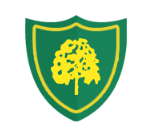Design and Technology
At Broomwood Primary School, we believe every child within our school should have full access to Design and Technology as laid down in the National Curriculum regardless of gender, ethnic origin or ability. We believe that Design and Technology is essential to prepare children to participate in the rapidly changing technologies of the world. Through this subject child develop their investigating, designing, making and evaluating skills by thinking and intervening creatively.
We believe all children should be encouraged to believe, achieve and succeed for a brighter future, within a positive, enjoyable atmosphere, which inspires all to learn and grow! We seek to ensure that our teaching reflects the current guidance to schools which emphasises the particular importance of designing and making.
Intent
At Broomwood Primary we intend to have a Design and Technology curriculum that provides the children with opportunities to make products that solve real and relevant problems within a variety of contexts, considering the needs, wants and value of others. We intend children to evaluate the success of their product for the intended user.
We intend for all children to acquire appropriate subject knowledge, vocabulary, skills and understanding as set out in the National Curriculum and where possible create relevant cross curricular links that further enhance their knowledge and understanding. We ensure that children in KS1 are exposed to Food, Textiles, Mechanisms, Structures and within KS2 Mechanical systems, Textiles, Food, Structures and Electrical Systems. Within KS2, they use Computer Aided Design to develop their work further. We intend for children to learn how to use both 2 and 3d CAD programmes. To ensure that the necessary curriculum coverage is achieved across the school, we have developed a DT Curriculum Coverage document:
We want Design and Technology to prepare our children, to give the opportunities, responsibilities and experiences that they need to be successful in an ever-changing world. Therefore, within each of our curriculum areas we have a clear progression of skills. This progression is set down in our Progression of Skills document:
Our curriculum is sequenced in line with the EYFS Statutory Framework (2021), Development Matters (2021) and the National Curriculum for Design & Technology (2013
Implementation
We have a whole school overview of DT, which is part of our two year rolling curriculum, and allows for progression across different key stages- EYFS, KS1, LWKS2 and UPKS2 and across the different areas of DT: Textiles, Mechanisms, Structures, Food and Electrical systems.
We ensure that children's learning is genuinely design and technological in nature and we include each of the following elements within each design project: User, Purpose, and Design decisions, Functionality, Authenticity and Innovation.
The Design and Technology Association scheme of work forms the core of our D&T curriculum. This scheme has enabled a strategic sequence of study that builds content and concepts over time, with vocabulary comprehensively structured and thoughtfully sequenced across year groups with progression in knowledge.
Each project address the principles of design, making and in evaluating incorporating the appropriate technical vocabulary. This is recorded in a booklet to show the whole process.
We provide further opportunities for children to develop cookery skills in year 3 where using seasonal produce, we develop an understanding of sustainability when making additional savoury dishes. We expose the children to a range of specific designers, chefs, engineers via the subject knowledge mats to engender an appreciation of creativity and achievement.
Safety is explained and modelled at the start of and throughout each product including food hygiene instructions.
We further enhance learning in Design and technology through annual STEM weeks where children see how this subject compliments Science and Maths and how it supports job opportunities for the future.
We harness particular children’s interest in DT through extra-curricular activities- STEM club, gardening and growing vegetables.
Impact
Children will have clear enjoyment and confidence in design and technology that they will then apply to other areas of the curriculum.
They will develop the creative, technical and practical expertise needed to perform everyday tasks confidently and to participate successfully in an increasingly technological world
Children will be able to test, critique and evaluate their products and ideas as well as those of others. They will develop a good knowledge, understanding and appreciation of a range of materials and how they have multi-purpose uses. They will build and apply a repertoire of knowledge, understanding and skills in order to design and make products for a wide range of users.
Children will understand and apply the principles of nutrition and learn how to cook. Children will design and make a range of products. A good quality finish will be expected in all design and activities made appropriate to the age and ability of the child
Children will have high aspirations, which will see them through to further study, work and a successful adult life.




























